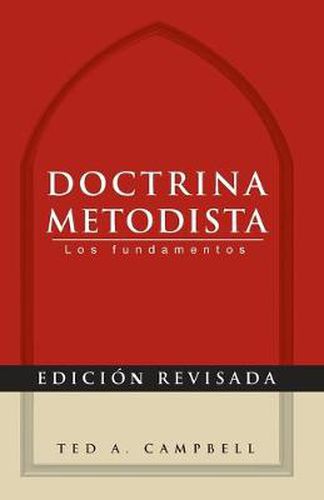Readings Newsletter
Become a Readings Member to make your shopping experience even easier.
Sign in or sign up for free!
You’re not far away from qualifying for FREE standard shipping within Australia
You’ve qualified for FREE standard shipping within Australia
The cart is loading…






This title is printed to order. This book may have been self-published. If so, we cannot guarantee the quality of the content. In the main most books will have gone through the editing process however some may not. We therefore suggest that you be aware of this before ordering this book. If in doubt check either the author or publisher’s details as we are unable to accept any returns unless they are faulty. Please contact us if you have any questions.
John Wesley distinguished between essential doctrines on which agreement or consensus is critical and opinions about theology or church practices on which disagreement must be allowed. Though today few people join churches based on doctrinal commitments, once a person has joined a church it becomes important to know the historic teachings of that church’s tradition. In Methodist Doctrine: The Essentials, Ted Campbell outlines historical doctrinal consensus in American Episcopal Methodist Churches in a comparative and ecumenical dialogue with the doctrinal inheritance of other major families of Christian tradition. In this way, the book shows both what Methodist churches historically teach in common with ecumenical Christianity and what is distinctive about the Methodist tradition in its various contemporary forms. Documents examined include The Twenty-Five Articles of Religion, The General Rules, Wesley’s Standard Sermons and Explanatory Notes upon the New Testament, The Methodist Social Creed, and the Apostles’ Creed. En este libro conciso y sencillo, Ted Campbell nos da un breve resumen de las doctrinas mas importantes que la familia de denominaciones wesleyanas comparten. Escrito con un lenguaje conciso y directo, Campbell estructura el material en categorias sistematicas: la doctrina de la revelacion, la doctrina de Dios, la doctrina de Cristo, la doctrina del Espiritu, la doctrina de la humanidad, la doctrina del camino de la salvacion (conversion/justificacion/santificacion), la doctrina de la iglesia y los medios de gracia y la doctrina de lo por venir.
$9.00 standard shipping within Australia
FREE standard shipping within Australia for orders over $100.00
Express & International shipping calculated at checkout
This title is printed to order. This book may have been self-published. If so, we cannot guarantee the quality of the content. In the main most books will have gone through the editing process however some may not. We therefore suggest that you be aware of this before ordering this book. If in doubt check either the author or publisher’s details as we are unable to accept any returns unless they are faulty. Please contact us if you have any questions.
John Wesley distinguished between essential doctrines on which agreement or consensus is critical and opinions about theology or church practices on which disagreement must be allowed. Though today few people join churches based on doctrinal commitments, once a person has joined a church it becomes important to know the historic teachings of that church’s tradition. In Methodist Doctrine: The Essentials, Ted Campbell outlines historical doctrinal consensus in American Episcopal Methodist Churches in a comparative and ecumenical dialogue with the doctrinal inheritance of other major families of Christian tradition. In this way, the book shows both what Methodist churches historically teach in common with ecumenical Christianity and what is distinctive about the Methodist tradition in its various contemporary forms. Documents examined include The Twenty-Five Articles of Religion, The General Rules, Wesley’s Standard Sermons and Explanatory Notes upon the New Testament, The Methodist Social Creed, and the Apostles’ Creed. En este libro conciso y sencillo, Ted Campbell nos da un breve resumen de las doctrinas mas importantes que la familia de denominaciones wesleyanas comparten. Escrito con un lenguaje conciso y directo, Campbell estructura el material en categorias sistematicas: la doctrina de la revelacion, la doctrina de Dios, la doctrina de Cristo, la doctrina del Espiritu, la doctrina de la humanidad, la doctrina del camino de la salvacion (conversion/justificacion/santificacion), la doctrina de la iglesia y los medios de gracia y la doctrina de lo por venir.